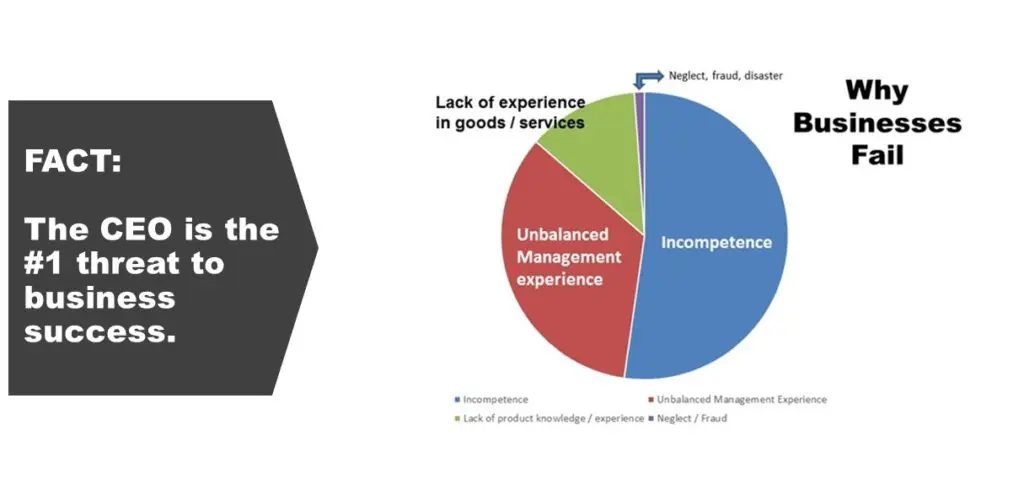
The heart of any company is its people. But while every team has its superstars, they also have “dragons,” waiting to breathe their fiery breath on everyone around them. Freely roaming your company are dark leaders who are taking your team down the wrong path. Think that’s not true? My experience in 26 years of growing businesses around the world is that the CEO is the last to know. Get the full report free.

Are you running your company? Or are the dragons breathing firey breath on everything you’ve built?
In my previous article, I discussed Randy, the CEO of a $24 million company who didn’t realize the negative effect he had on his own company.
Randy had been in business for a few years. After a very successful beginning, his toxic corporate culture, what I call the “black tide of risk,” was costing him employees and clients. And with angry and neglected employees roaming his shop, it was increasing his risk of lawsuits.
Randy’s receptionist, Paula, was just one dragon, but a powerful one. She was overworked, unhappy and sick of bearing the brunt of Randy’s stress. What Randy didn’t know is that when clients would call for assistance, she was usually indifferent and often downright rude.
Paula loved to gossip. You know the type: Tell the story and make it dramatic. Throw in a juicy plot twist, a little conspiracy and some dirt, and the tide begins to rise over the rest of the team.
Technically, Paula wasn’t a leader in the company, but she did have followers. Fanning the flames of stress, she used her front-office position to make it seem like she had real insight into the company’s and the boss’s inner workings. Paula had everyone on edge, especially her followers. Randy soon had more “leaders” joining in on the toxic soup of gossip and negativity, bringing morale and the company down.
The biggest problem was that Randy was completely clueless. He talked a lot about values and being a great team, but what was written on paper wasn’t apparent anywhere in the office or on the shop floor. Everyone on the team felt as though they were living in chaos and barely surviving.
People showed up to do their jobs, but little more. The one or two superstars in the company were quickly being worn down and had their eyes on the door, sneakers on, ready to run to their next opportunities. Turnover was so consistent, it was like rats abandoning a sinking ship. As sales and profits dropped, ordering and shipping errors, production mistakes and on-site accidents climbed.
Ultimately, word on the street started to spread. Unhappy clients shared their frustration and anger with endless calls to customer service and even Randy himself on social sites and industry message boards — not exactly the tonic the beleaguered sales team needed.
There are dragons hiding in your company. Here’s how to find them and slay them.
1. Have a third party conduct a confidential audit of your team. Confidentiality is key. Everyone in your company is “invested” in some way; they have a side. Insiders also have relationships and perspective. They can’t be impartial, and neither can you.
The third-party auditor should design both questions and conversations to ensure that each person interviewed feels comfortable sharing what is and isn’t working. They can uncover what’s really going on by asking the right questions and listening to the answers. If this is done well, real insight into problems and creative solutions will arise.
Just make sure that this evaluation includes you. Trust me: You’ll be surprised by the insight.
Get the Full Report. 13 Hidden Dangers ready to destroy your business.
2. Make sure that all your leaders are suited for the positions. Leadership is a talent and skill. Be sure to nurture it.
3. Fire the dragons immediately. If someone is just not suited for your company, they must go. Don’t wait. Toxic employees create a toxic company, and while you’re dealing with these C- and D-players, your superstars are the first to run for the exit.
4. Create an intentional culture from the ground up. Your company, from its employees to its products, has a personality. Who do you want to be? How do you plan? How do you celebrate? What do you stand for? And how do you solve problems? What are you against (e.g., bad customer service, gossip, lying)? Are there any activities that you want to incorporate (e.g., quarterly game night, pizza Tuesdays, etc.)?
Ask the team what’s important to them. Listen to and incorporate what they tell you. And give everyone a chance to shine and take ownership for successes. If your company is small enough, include the entire team in the discussion. If that’s not possible, have mini teams or elected representatives participate.
The bottom line is that your team dramatically affects your bottom line. They can be your greatest asset. Care for and invest in them as carefully as you do your equipment, products and clients, and not only will they serve you, but they will help you grow your company and keep you from drowning in the black tide of risk.
